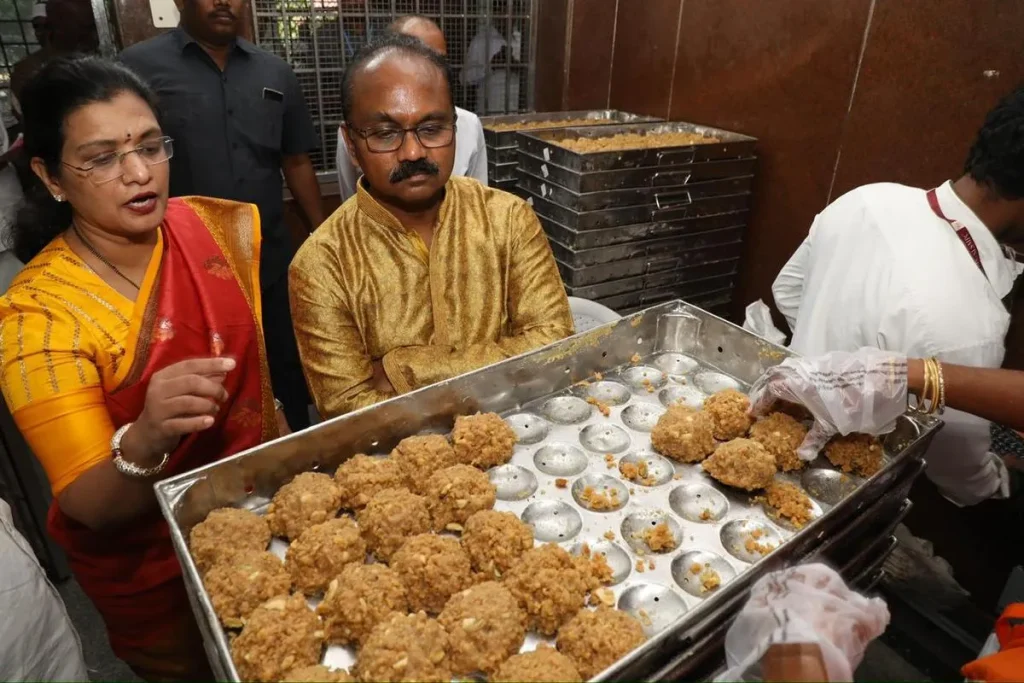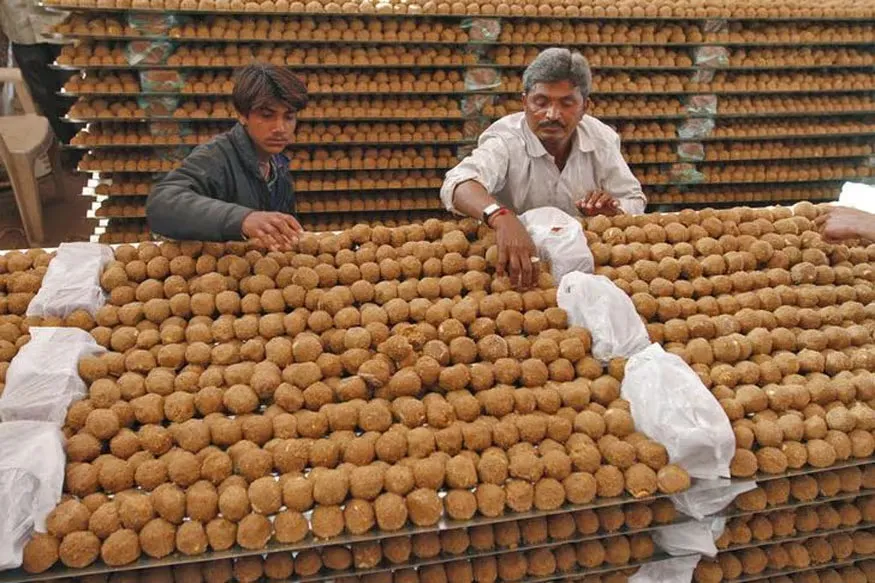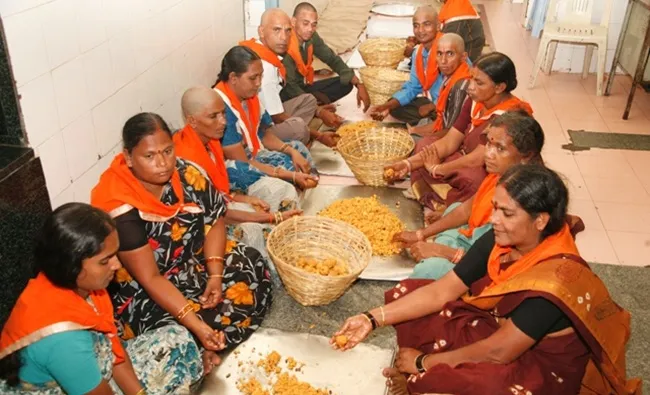The Tirupati Temple, considered to be one of the world’s most frequented places of pilgrimage, attracts millions of devotees and also runs an exceptionally successful and profitable laddu business. Indeed, one of the best-known products of the temple is its “Tirupati Laddu.”.

Background of the Tirupati Temple
Located in the Tirumala hills, Andhra Pradesh, Tirupati Temple is dedicated to Lord Venkateswara, a form of Vishnu. The ancient temple dates back centuries and was a pivot around which Hindus would conduct pilgrimage. Annually, millions of people visit the temple, who seek divine blessings from Lord Venkateswara, mainly through the famous offering called laddu.
The Laddu Offering

Tirupati Laddu is a prasadam especially prepared as a sweet eddy that is made out of ingredients like chickpea flour, sugar, ghee and various varieties of flavourings. The preparation demands skilled artisans who make these sweets in large numbers. The temple administration estimates they prepare more than 1.5 million laddus every year for the pilgrims.
Revenue Generation
Apart from the religious significance of the laddus, the laddu business is a rich venture at the Tirupati Temple. As these are sold for a reasonable price of around ₹50 and in such massive numbers, it amounts to a significant figure. According to estimates, it can raise more than ₹500 crores in a year; therefore, it’s one of the primary sources of income for all those charity activities and maintenance carried out in the temple.

Operations and Management
The operation of laddu production and sales is managed by the Tirumala Tirupati Devasthanams (TTD), the governing body of the temple. They have established efficient systems for production, packaging, and distribution. This includes:
- Quality Control: Ensuring that every laddu meets high-quality standards is paramount. Regular checks and audits are conducted to maintain consistency and taste.
- Sales Channels: Laddus are sold at designated counters within the temple premises, and online pre-booking options have also been introduced, allowing devotees to order laddus in advance.
- Cultural Significance: Beyond being a sweet treat, the laddu carries immense cultural and spiritual value. It is offered to the deity and then distributed to devotees as a symbol of blessings.

Community Impact
The revenue from the laddu business is channelled into funds for several community welfare initiatives like free educational institutions, hospitals, and meal programs for the deprived sections of society. This gives credence to the belief that the temple has its strong beliefs about charity and welfare services in keeping with its thought process to give back to society.

Conclusion
The laddu business at Tirupati Temple has been a complete synergy of spiritualism and enterprise. While catering to the gargantuan demand emanating from the devotees, the business in this regard adds to the enormous revenue generated to support all kinds of welfare activities. While the generations ahead will remember the temple more, the laddu stays as an inseparable part of it. It epitomises devotion, tradition, and social welfare.
